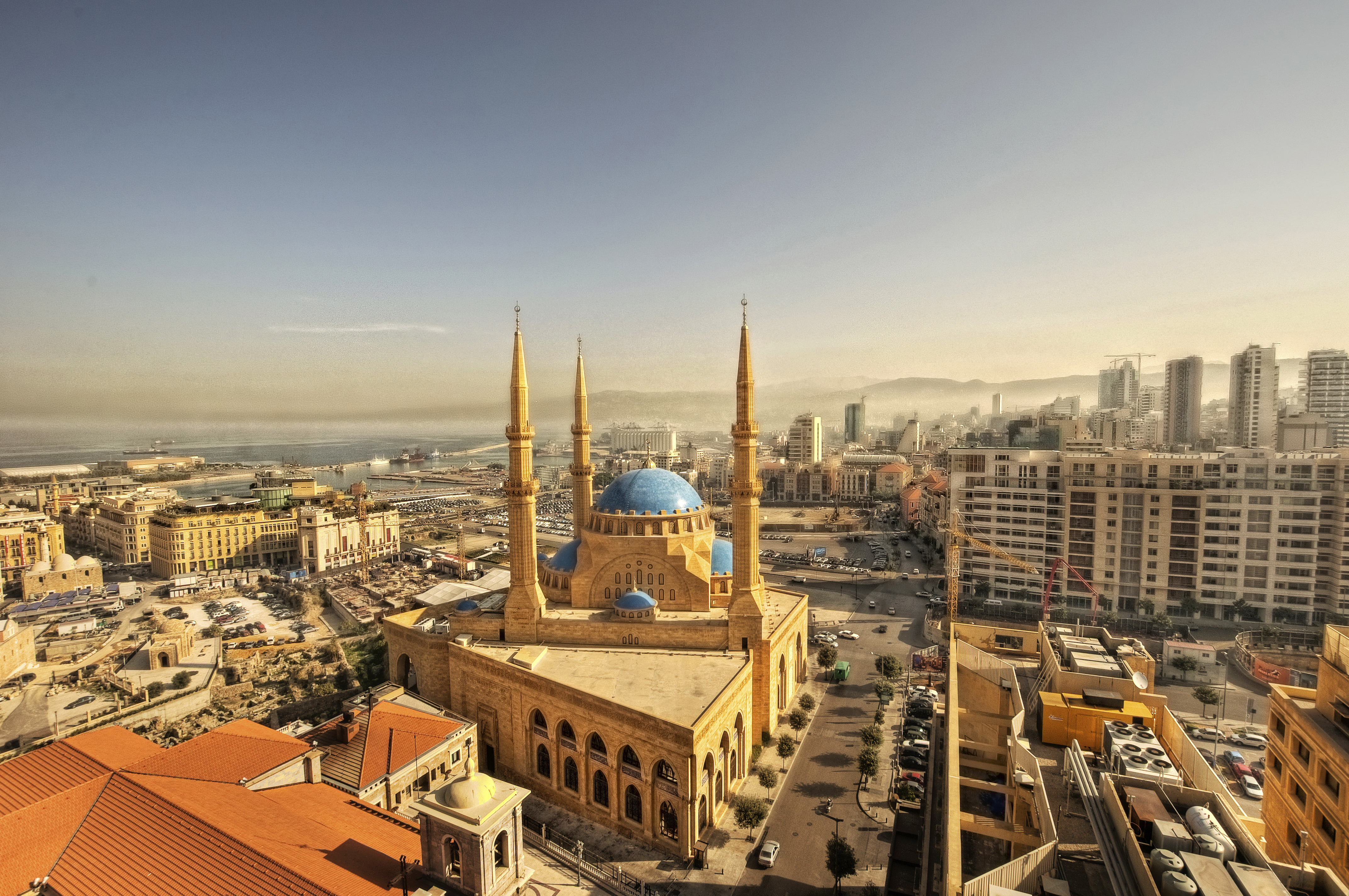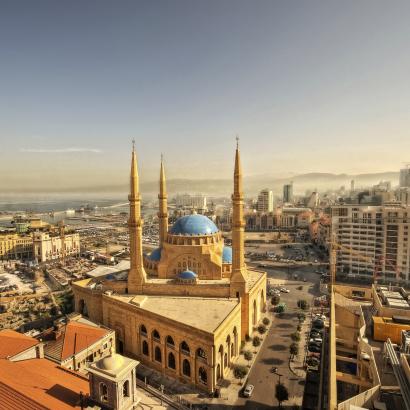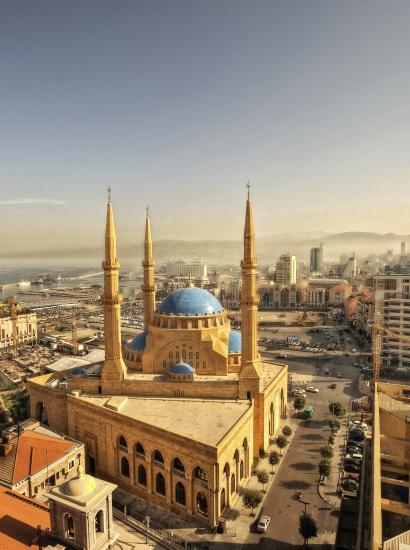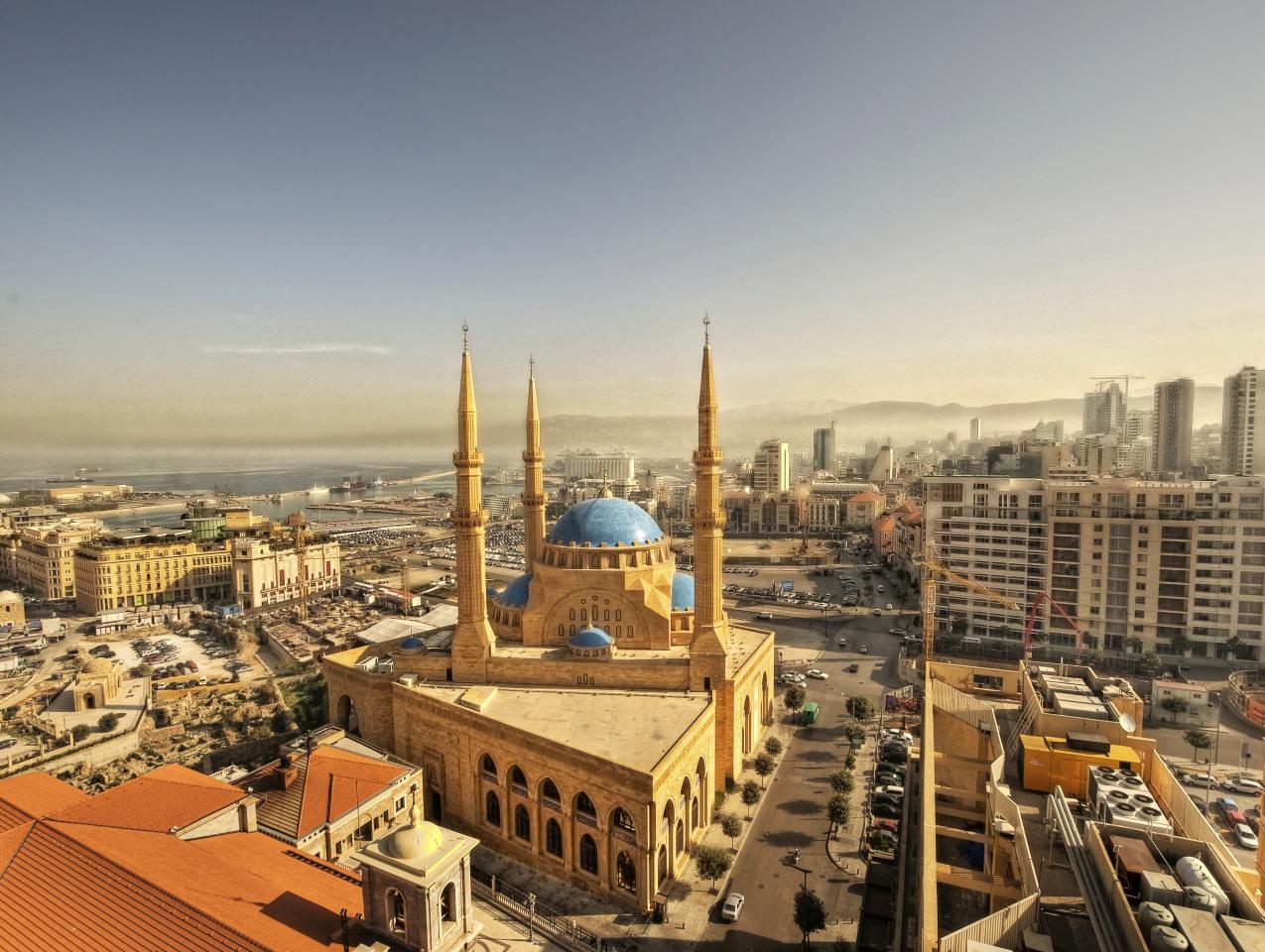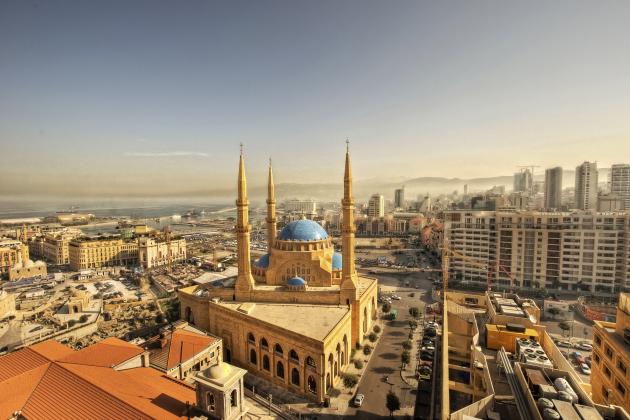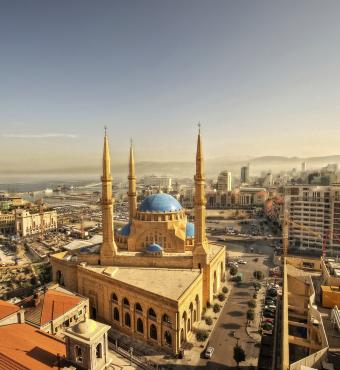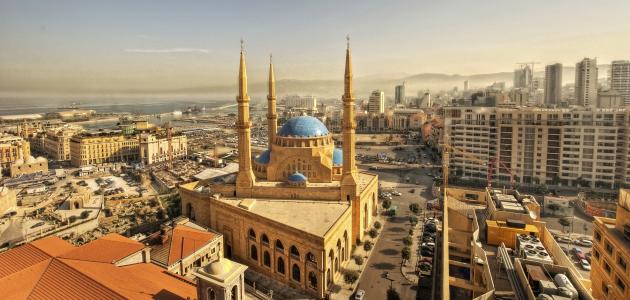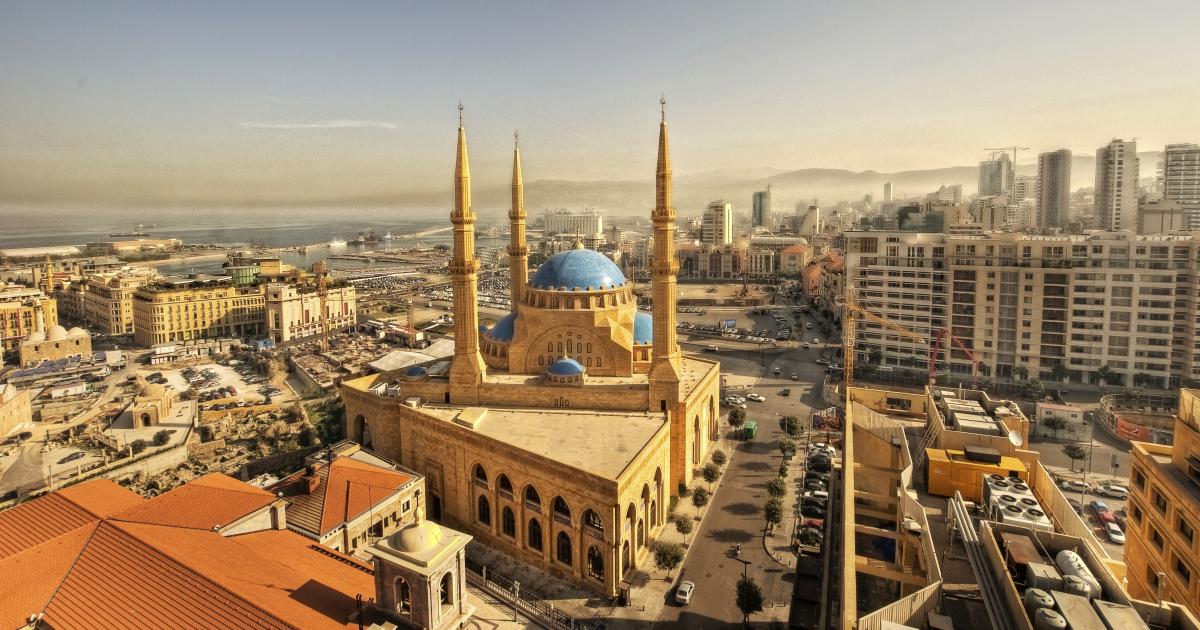The War in Ukraine is in its second year with no end in sight. Israeli protests continue against Prime Minister Netanyahu’s fiddling with the country’s traditionally strong independent judiciary. Paris is, again, tout feu tout flame in demonstrations mode, as if part of France’s annual “Rites of Spring.” School-shootings continue apace in America.
Meanwhile in Lebanon, as the fasting period of the Muslim holy month of Ramadan 2023 entered its early hours, the country’s caretaker government took the unprecedented step of “postponing” the annual switch to Daylight Saving Time. Lebanon shall rejoin the international DST system at midnight on April 21, 2023, declared caretaker Prime Minister Nagib Mikati—a random inexplicable decision that threw the country into frenzied deliriums of indignation and expressions of approval, doled out in equal measure by supporters and opponents alike. Soon enough, this seemingly innocuous “clocks reset” came to acquire the inevitable sectarian tincture in a multi-ethnic state mired in unresolved ethnoreligious tensions since at least the early 1970s.
The rationale of the Lebanese government and its supporters for the initial postponement was that “springing forward” the official clock would have prolonged daylight hours, making the burden of the Ramadan fast observance a more onerous one. Conversely, fewer daylight hours, the government reasoned, meant fewer hours of fasting and longer Iftar feasting. What’s not to love, right? Except that observant Muslims strictly adhering to this annual sacred ritual do not ordinarily follow a profane man-made “clock” but instead answer to a more reliable “celestial” authority: a divine order regulated by natural cycles of sunrises and sunsets, unaffected by any mundane “what time is it?” Nevertheless, the Lebanese government, in its baffling wisdom, still went ahead with this fanciful gesture, angering not only non-observant Lebanese Muslims, but also Lebanese Christians who happened to be on the last leg of their annual Lent, and who saw in taking them off the “international time-zone system” a disruption of their own fasting season, and a last-minute bungling of Holy Week and the Easter celebrations to come.
If anything, this decision took Lebanon altogether “off the clock” so to speak, isolating it internationally even more so than it had already been isolated, and throwing into disarray all global activities that ordinarily depend on coordinated “time zones”—international air travel, telephone and internet security, credit card use, banking, and other commercial transactions, all of which function on “Authentication and Authorization” security protocols relative to pre-agreed synchronizations. Indeed, the most perfunctory, spontaneous, quotidian tasks of modern life can potentially come to a halt without accurate timestamps crucial to compliance with international exchange and regulatory and security standards.
The societal backlash in Lebanon proper was immediate and widespread. This spanned the very Arabist (and therefore very attuned to Islamic sensibilities) American University of Beirut (AUB), and the very Christian Maronite Catholic and Greek Orthodox patriarchates. Indeed, on March 26, 2023, AUB’s Office of Communications, after having initially begun implementing the government’s decision to delay switching to daylight saving hours, noted that there was “no plausible defense for the cavalier manner in which this decision … has been made,” adding that it was disorienting university exercises and affecting the functioning of AUB’s teaching hospital. For its part, the Maronite Patriarchate issued a strongly worded statement on March 25, 2023 decrying the government’s decision, calling it “improvised,” “unilateral,” and “dismissive of the various components of Lebanese society and of international standards, leading to confusion both at home and abroad.” The Maronite Patriarchate further resolved, along with its affiliated eparchies and institutions, to “not abide by the government’s decision” and to synchronize its clocks with the International Standards of Daylight Saving effective midnight Saturday, March 24, 2023.
These micro- “mutinies” ultimately strongarmed the Lebanese government into backtracking, abandoning its initial decision, bringing Lebanon back into the international fold, and mandating that all Lebanese “official clocks” adopt the Summer Daylight Saving standards effective midnight Wednesday, March 29, 2023. But the damage had already been done. Besides bringing to the fore the government’s indecision, its disorientation, and its utter absence of effective leadership in a country already in the throes of social, political, and economic freefall, this kerfuffle over time reaffirmed Lebanon’s disengagement from standards of international norms. It also reawakened a deep rift that had for years rent asunder Christian and Muslim Lebanese over the nature of their small republic, its identity, and its future.
Thus, this small country, smaller than the state of Connecticut, briefly skirted the prospects of having two time zones: a Christian time zone and a Muslim one, bringing back the memories of the 1975 “civil war” when Lebanon was de facto partitioned into Christian and Muslims cantons. And so, from what were to be two opposed time zones, recalling actual artillery salvos of the olden days, rhetorical shots began being exchanged, between Lebanese Christians and Lebanese Muslims. Christians accused a Lebanese government beholden to the international terrorist group Hezbollah and its Iranian sponsor of further isolating their state from a “Christian West” that they were attuned to. Muslims for their part bristled at the Christians’ indignation, with some voices on social media dismissing Lebanese Christians as puerile and insecure. One Tweet in particular, tauntingly flaunted a provocative Muslim doctrine on Christology by wondering “what would the Christians do if they found out that Issa [Jesus] did not die on the cross?” Besides using an Arabic reference to Jesus (Issa) that many Near Eastern Christians take umbrage to, the statement was also a wanton Muslim jab at the foundational Christian “theology of the cross” and the belief in the “redemptive suffering” of Jesus.
But this is an old story in Lebanon, an old rivalry between East and West, between Muslims and Christians, over the ill-defined identity of Lebanon, a century-old rivalry that had culminated in a murderous war between 1975 and 1990, later ceding Lebanese sovereignty (in return for “civil peace”) to Syrian and Iranian overlords. The founding fathers of modern Lebanon had warned about such dissensions as early as 1920, on the day of the founding of the Lebanese republic. Is Lebanon Christian or Muslim? Is it Arab or Lebanese? Is it of the East or of the Mediterranean (West)? Those were questions that had long preoccupied the Lebanese and stumped them for a good part of a century of troubled statehood. Some Lebanese Christians at the time attempted to stunt (even abort) the birth of modern Lebanon as an “entente cordiale” between Christians and Muslims, between Lebanonists and Arabists, between Mediterraneanists and Red-Sea champions, advocating instead for a Near Eastern Christian “national homeland” on the Eastern Mediterranean, on Mount Lebanon, the traditional heartland of Lebanese Christians. With some Lebanese Muslims on social media calling for Lebanese Christians to be “kicked back to Europe,” and some Lebanese Christians calling for the partition of Lebanon over such calumnies, these “anxieties of a century” all came to a head in late March, all courtesy of an otherwise innocuous, yet ill-timed, switch to Daylight Saving Time.
Worth mentioning in this context is a common taunt among Arabists and Islamists in the Near East, the claim that Lebanese Christians aren’t “authentic” or “native” to the region, that they are a Western colonial implant, remnants of the eleventh century Frankish Crusaders, and thus they deserve being “kicked back to Europe.” Those are fallacies of course. But they are sensitive triggers for many Lebanese Christians. Indeed, speaking of “indigeneity,” Lebanese Christians can be said without a doubt to be the real “first nations” of Lebanon, whereas Arabs and Muslims may in fact be the allogeneic settler-colonials, remnants of the seventh-century conquerors from the Arabian Peninsula who overtook the region in the name of a triumphant Islam, and suppressed its pre-Islamic history.
That this conversation is being rekindled in today’s Lebanon suggests the “coexistence” formula between Christians and Muslims, upon which the modern Lebanese Republic was built, might have outlived its utility. The notion that the Lebanese were “conduits” between East and West, that their country was neither wholly Muslim nor wholly Christian, that its children were neither Arab nor Mediterranean but instead hybrid intermediaries, seems to have breathed its last breath. Indeed, the death knell of this Lebanon had already been sounded in 1949, in an iconic editorial titled “Two Negations Don’t Make a Nation” penned by public intellectual and essayist Georges Naccache, an editorial that earned Naccache a six-month prison sentence and the suspension of his newspaper. The reason for the verdict was that Naccache concluded that a nation’s essence must be founded on a clear definition “of what it is, not what it is not.” Yet Lebanon’s “balancing act of survival,” as he called its power-sharing formula, was defined by what the country was not. The subject of Naccache’s thesis, and the object of his assault on modern Lebanon’s foundation myths, was the so-called “National Pact” of 1943, a gentleman’s agreement (not a written document) that still was binding, that enshrined “power-sharing” in Lebanon by yielding the “lion’s share” to the Christians, and that defined Lebanon not as Arab per se (which had pleased the Christians back then,) but as an “independent and sovereign republic with an Arab face” (which had palliated the Muslims.) That pact, wrote Naccache in 1949,
which was a foundational covenant cementing Lebanon’s independence, carried within it the very contradictions that make today’s Lebanon ungovernable … This so-called “no Westernization and no Arabization” formula [upon which Lebanon was built], this double negation upon which Christianity and Islam have cemented their alliance, is a blueprint revealing not what the Lebanese have in common but what set them apart. Indeed, in their pursuit to be neither of the East nor of the West, the captains of the Lebanese ship led us astray and made us lose our bearings … It is sheer madness to have turned a compromise into a state doctrine … Indeed, Lebanon cannot and ought not be anything other than itself. Yet by dint of wanting to be neither this nor that, Lebanon now risks becoming nothing at all … A state is not the sum of two variants of impotence; two negations can never add up to being a nation.[1]
Going back to the topic of the hour, which is to say the Lebanese government’s antics over the implementation (or not) of Spring 2023 Daylight Saving Time, this too has become a debate over a Lebanon living in a Christian time zone vs. one living in a Muslim time zone. Indeed, Naccache had already treated that very topic in a prophetic 1948 essay where he wrote:
this is indeed what you are, Lebanon, a country where not once in the past twenty-five years have two official clocks succeeded in marking the same time … where the policeman is the perennial ally of the smuggler, and where the tax collector is the tax-evader’s protector … Lebanon, beautiful disorder, sweet injustice in a world ravaged by excesses of order and justice.[2]
Lebanon of today can indeed be summed up by the above, but also by another prophetic verity that became crystal clear to Naccache in 1962. “In this fragmented Arab space,” he wrote, “a Lebanese peace is going to be difficult to come by … This is a bitter reality becoming clearer by the day, and we are not yet at the end of the surprises and the further torments coming our way.”[3]
Daylight Saving Time or not, time seems to be running out on the pursuit of a unitary Lebanon, on preserving a “dialogue of civilizations” that has outlived its utility. Perhaps this spring’s fleeting period of “two time zones” for this tiny, troubled republic was a harbinger of better things to come? Or perhaps the “two time zones” are reflective of the realities of two clashing civilizations disputing the same physical space, and this “clash of civilizations” ought to be formalized by splitting Lebanon into two republics, each at peace with its own identities and neighbors? Indeed, “two negations cannot make a nation,” and without separation, Lebanon very realistically “risks becoming nothing at all.”[4]
[1] Georges Naccache, «Deux négations de font pas une nation» [Two Negations Don’t Make a Nation], L’Orient, Beirut-Lebanon, March 10, 1949. See also Naccache, Un rêve libanais, 1943-1972, (Paris: Editions FMA, 1983), 57-8.
[2] Naccache, «Tu es bien ceci…» [You Are Truly What you Are], L’Orient, Beirut-Lebanon, September 17, 1948. See also Naccache, Un rêve libanais, 49-50.
[3] Naccache, «Dans ce monde arabe éclaté» [In This Broken Arab World], L’Orient, Beirut-Lebanon, June 1, 1962. See also Naccache, Un rêve libanais, 1943-1972, 171-2.
[4] Naccache, «Deux négations», op. cit.







